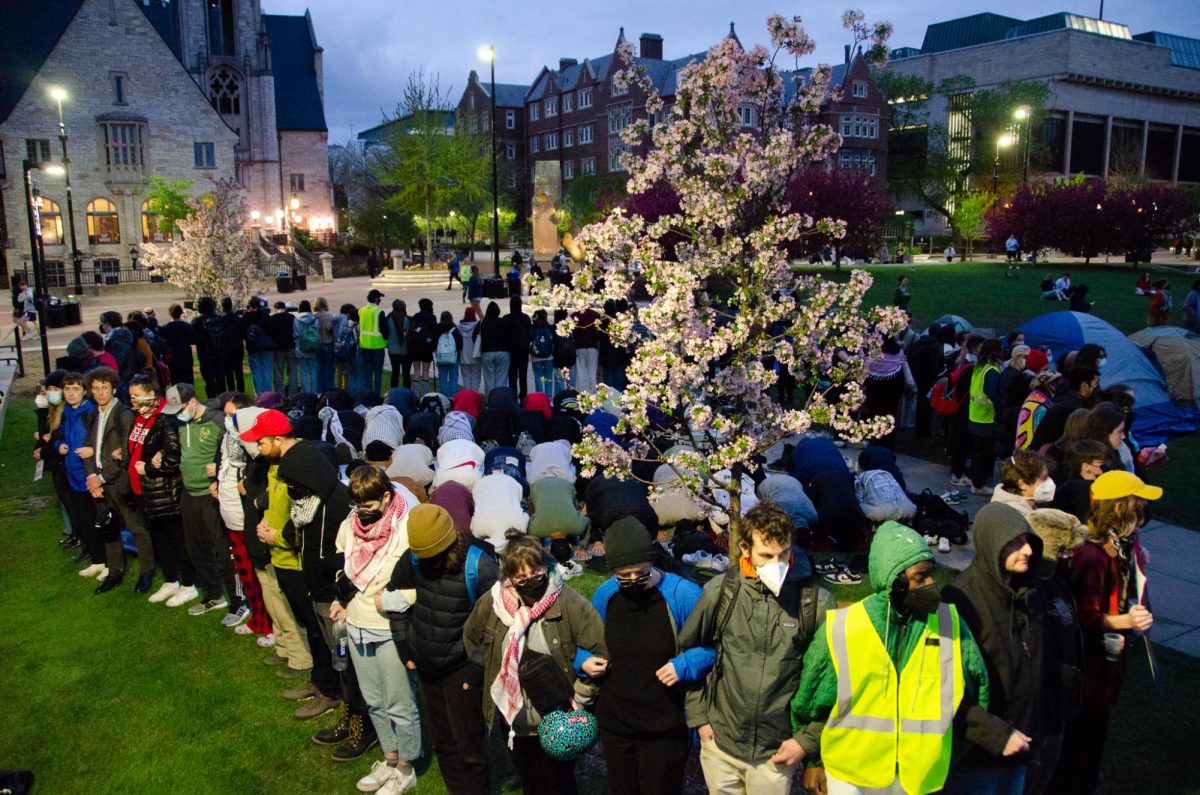Exam proctoring software Honorlock’s use at the University of Wisconsin recently came into question as professors and students alike attempt to navigate the online learning environment.
Though remote proctoring software like Honorlock became commonplace at many universities attempting to keep students “honest,” a number of UW students sounded the alarm and said the invasive software should be banned at UW. Some professors, however, took a more embracive stance.
UW professor of biochemistry Richard Amasino said he used Honorlock for his courses over the summer mainly because the extension received UW’s seal of approval. As for this semester, Amasino said he will use Honorlock again, but he plans on exploring whether or not Honorlock could be used in a more effective manner.
“I really struggle if we should use this or not, but I will say that in the latter half of the spring semester, as well as the summer, we had groups of students engaging in cheating on our exams,” Amasino said.
In an email statement to The Badger Herald, Director of News and Media Relations Meredith McGlone said UW prepared an FAQ sheet for Honorlock.
McGlone said when using Honorlock, students may not opt-out of the Chrome browser and must follow multiple identification steps, both before and during an exam. According to the FAQ, students must be alone while taking their exam and they must provide photo identification. After the student shows a driver’s license, Wiscard or passport, Honorlock snaps a photo of the tester’s face, McGlone said in the statement.
Following the snapshot, Honorlock takes a 360 degree scan of their room.
Honorlock uses artificial intelligence. Through a device’s front facing camera, AI tracks a test taker’s behavior, flagging any activities which could facilitate cheating, such as another individual entering the room or a student looking away from a device for too long.
Instructors may also use a lockdown browser, which stops a test taker from opening outside resources on any given device. UW junior Claire Turke said she first used Honorlock over the summer in Amasino’s BioChem 501 course.
“It felt like a real invasion of my privacy and I was a little insulted,” Turke said. “I think as college students we should know that cheating is really just not going to benefit us in the future. I think being policed in that way is just overkill, in my opinion, because if you really care about your education, you’re not going to cheat on your exams.”
University Housing now charging quarantined students in Sellery, Witte for meals
UW junior Amanda Kemper said she sees Honorlock as an invasion of privacy as well and took to social media. Via change.org, Kemper created a petition to ban Honorlock in August. The petition condemned Honorlock’s tracking of a student’s secure data, identity and voice. Additionally, the petition highlighted Honorlock’s facial recognition feature, distribution of data and Family Educational Rights and Privacy Act compliance as points of concern.
When classes began trial runs with Honorlock again this semester, more and more students expressed frustration with the software. The petition amassed almost 2,000 signatures as of early September.
“This is a major invasion [of] basic rights being expedited among students and universities alike in the midst of a global crisis,” Kemper stated in the petition. “It would be a shame to have to deny complying with usage of this software and receive a zero on our tests.”
McGlone said Honorlock UW vetted Honorlock for compliance with the privacy protections outlined in FERPA. Students’ private information cannot be sold to private third parties due to an agreement the university has with Honorlock, McGlone said.
UW asked students to reach out to their instructors if their technology, internet connection or lack of a disruption-free test taking space becomes an issue, McGlone said. Turke, however, said professors should “ditch” Honorlock.
“Find another solution for proctoring your tests or figure out a way to have students be able to take them open-book and still get something out of the tests,” Turke said. “I think it’s too much of a privacy issue — it’s too creepy.”
Though some professors put Honorlock aside this semester due to privacy concerns, many classes will continue to require the software during this online learning season, until UW produces an adequate alternative. Honorlock stores student data for 12 months, and potentially longer, should UW choose to pursue an academic integrity investigation.
Amasino said Honorlock is not meant to anger students but to hold them accountable.
“I’ve always bragged — and will continue to brag — that overall, the undergrads in Wisconsin stack up against, on average, anybody else’s university, and I’m delighted to be here,” Amasino said. “I hope the university can come up with some system that’s fair to all the students — when certain students cheat, even if they are a tiny minority, it’s not fair to the other ones.”

















